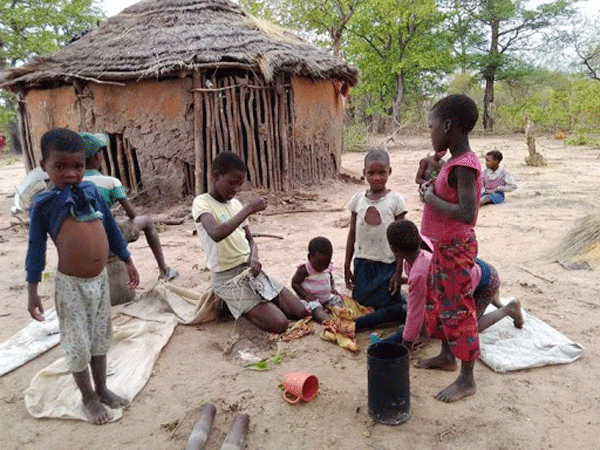
BY VUSINDLU MAPHOSA
An estimated 300 school-going San children in Tsholotsho, Matabeleland North province, need fees assistance to go to school amid revelations their parents are failing to raise the money due to poverty.
The San community in Tsholotsho is mostly found at Sanqinyana, Gariya and Dlamini villages.
A San community member, Malaki Tshuma, said life was a nightmare for him and other San community members who were struggling to send their children to school.
“I have children who go to both secondary and primary schools, but paying for them is a struggle. “I have no means of making money since I am not formally employed,” said Tshuma.
Tshuma said in Tsholotsho villages where San people were found, Mpilo Primary School has 65 children who fail to pay fees.
Another San community member, Christopher Dube, said: “There are so many children who are failing to go to school due to failure by their parents to raise school fees, and at the moment, most of them are not getting any help from anywhere,” Dube says.
He appealed for well-wishers to come to the San community’s rescue, adding that they lagged behind on development and education issues.
- Chamisa under fire over US$120K donation
- Mavhunga puts DeMbare into Chibuku quarterfinals
- Pension funds bet on Cabora Bassa oilfields
- Councils defy govt fire tender directive
Keep Reading
Another San community member, who only preferred to be called MaMoyo, said she was traumatised daily when she sees other children going to school when hers are not paid for because of poverty.
“I am unable to pay fees for my two children, one going for primary and another for secondary education. At times schools send back the children to collect fees, but what can we do when we have no source of income? We simply push them to school, hoping they will be lucky to be allowed or to get a well-wisher to assist us, but all is not well with most of us,” she said.
David Ndlovu, the director of Tsoro-o-otso San Development Trust, an organisation lobbying for the rights of the San community, said they could be over 300 children who need assistance in paying fees, according to the organisation’s survey.
“There are so many children who are failing to pay school fees, even counting them is not worth it because all the San parents are failing to pay. There are over 300 children who need to be assisted with school fees. Even at John Landa Secondary School, they are not paying, and if we do not have anything to help them, it becomes worse. But we agreed with John Landa Nkomo Secondary that if we manage to get mealie meal, we assist them with that,” Ndlovu said.
He said they were making an assessment of the situation, and after that, they will then hold a policy engagement with stakeholders to map the way forward.
Primary and Secondary Education ministry spokesperson Taungana Ndoro said the Basic Education Assistance Module (Beam) is a government programme that pays primary and secondary education school fees for students who cannot afford in Zimbabwe.
“The programme is coordinated by the department of social services of the ministry of Labour and Social Services. Beam does not cover other materials needed for schools such as uniforms, food, transport, books and stationery,” said Ndoro.
“Beam is a programme that provides school fees, examination fees, levies and building assistance. The government of Zimbabwe introduced it in 2001. It targets vulnerable children who are unable to pay school fees or those who fail to go to school as a result of non-availability of money.”
He said no school should send children home because of non-payment of fees, but the schools must engage parents for a payment plan. Ndoro no report has been received from the San community about their problems.
The San population is estimated to be over 2 500 across the country. Tsholotsho has San families in wards 1, 2, 7, 8 and 10. For thousands of years, San people have lived on hunting and gathering.
- This article was originally published by The Citizen Bulletin, a nonprofit news organisation that produces hard-hitting, hyperlocal reporting and analysis for the southwestern region of Matabeleland.










